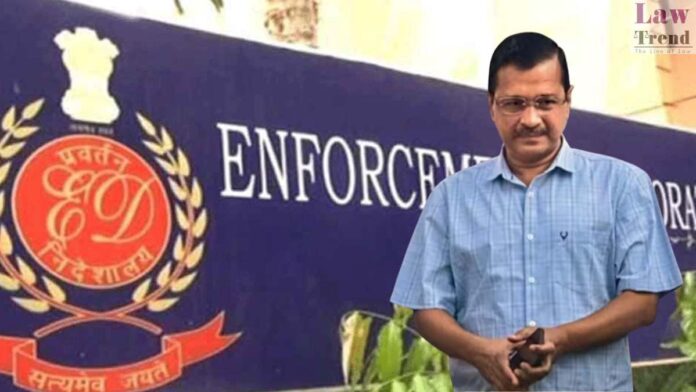In a significant development, Delhi Chief Minister Arvind Kejriwal has been remanded to judicial custody until April 15 in connection with the controversial liquor policy case.
Kejriwal will be sent to Tihar Jail for the next 15 days, making him the first sitting Chief Minister in India to run the government from jail.
The case, which has been at the center of much political debate and scrutiny, pertains to allegations surrounding the formulation and implementation of a liquor policy in the national capital.
The decision to remand the Chief Minister to custody was made following a court hearing where the prosecution presented its case, arguing for the necessity of custody to ensure a thorough investigation.
The defense, on the other hand, contested the need for custody, asserting the Chief Minister’s cooperation with the investigative processes and highlighting his position as a public servant.
The remand period until April 15 is expected to be a critical phase, with the investigative agencies likely to intensify their examination of the case details and associated documentation.
The sequence of events began when Kejriwal contested a magisterial court’s summons on March 14, issued in response to the Enforcement Directorate’s (ED) complaints of him not adhering to previous summons. Despite missing nine such calls from the ED, a subsequent complaint landed in a magisterial court, leading to an order by Additional Chief Metropolitan Magistrate Divya Malhotra for Kejriwal to present himself on March 16.
A turn of events on March 15 saw Kejriwal receiving bail from a Delhi court regarding the ED’s complaint, coupled with a mandate to post a ₹15,000 bond, with proceedings adjourned to April 1.
The legal tussle intensified on March 20 as the Delhi High Court evaluated Kejriwal’s petition against the ED’s summons, prompting the ASG SV Raju to question the plea’s validity on behalf of the ED.
Despite arguments from Senior Advocate Abhishek Manu Singhvi, representing Kejriwal, highlighting concerns over potential arrest, the court inquired about Kejriwal’s non-compliance with the summons.
Following unsuccessful attempts to secure arrest protection from the Delhi High Court on March 21, Kejriwal was detained by the ED the same evening. His subsequent ED custody was set for six days by a special judge, despite the ED’s request for ten days.
Kejriwal sought intervention from the Supreme Court against his arrest on March 22 but later redirected his efforts to the trial court, which affirmed his ED custody.
Also Read
An urgent plea to the Delhi High Court for an expedited hearing was postponed to March 27 due to the Holi break, closely preceding the end of his custody.
The Delhi High Court’s session on March 26 addressed Kejriwal’s challenges against his arrest and ED remand but denied immediate release, scheduling the final hearing for April 3 and allowing the ED until April 2 to respond.
In a subsequent development on March 28, the trial court extended Kejriwal’s detention to April 1, further elongating the legal proceedings entangling the Delhi Chief Minister.




